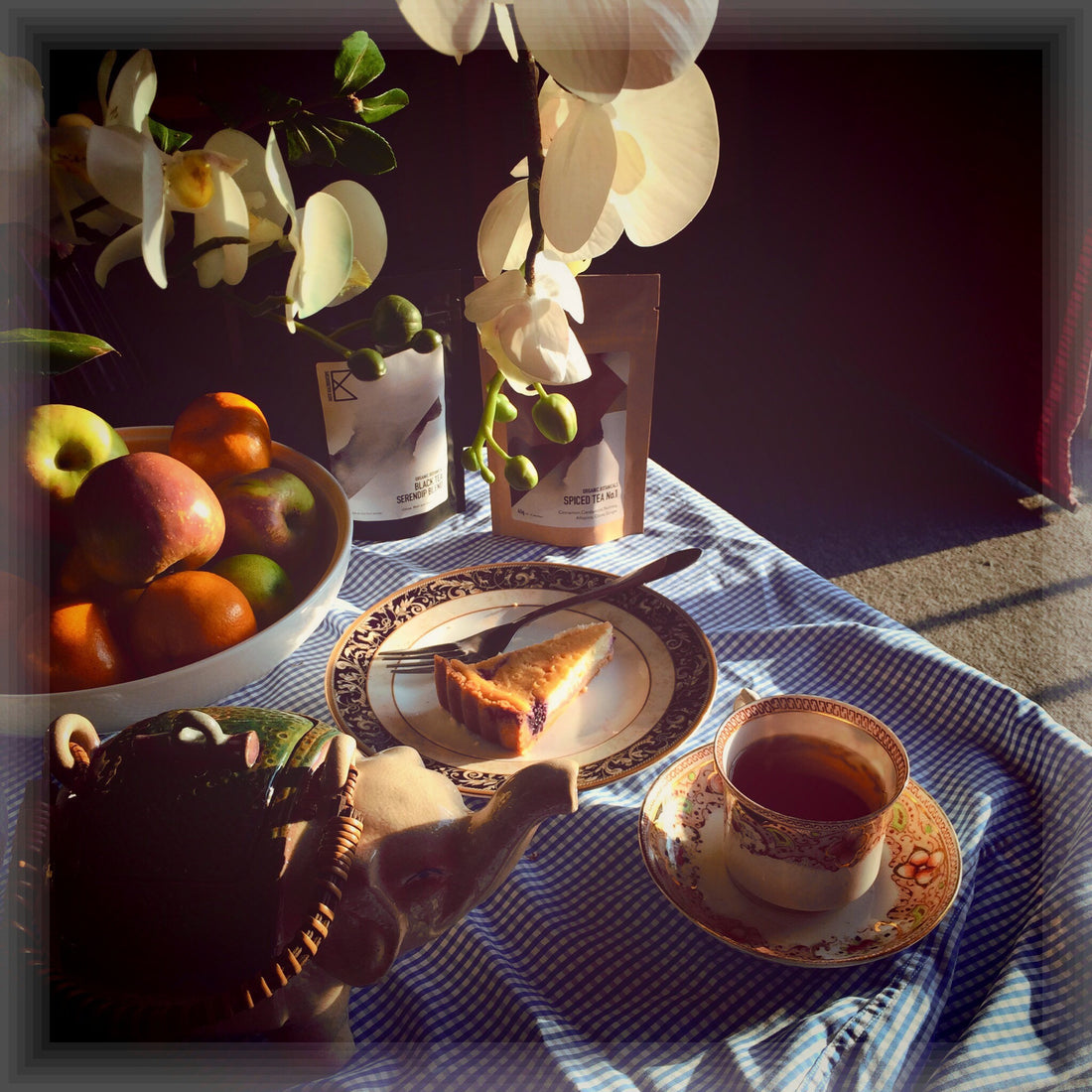Brewing tea for a friend is one of life’s greatest pleasures. There’s nothing like having friends over on a cold winter’s night, brewing a pot and enjoying the aromas, cupping your mugs to keep warm and giving your taste buds a real treat.
But what type of tea should you brew? Organic, tisane, bagged, loose leaf, chai, or just plain green tea - the options are endless when it comes to tea.
Brewing the perfect pot depends on a few factors but, most importantly, brewing should be enjoyable and make your guests feel looked after.
What Tea Means to Us
If we want to get all technical, the true definition of tea is really just a mixture of leaves (and sometimes stems) from “camellia sinensis”, or tea tree.
Tea tree only has two varieties, sinensis or assamica. So, the reason you have hundreds of different tea options comes down to the plucking periods, the types of leaves picked, and the processing of the tea leaves.
Processing organically (because that’s what we love to do) involves drying, oxidation, fermentation, roasting, aging and blending. This process alters the tea by concentrating and oxidizing the flavour compounds, including the essential oils and amino acids, resulting in a wide variety of unique tastes and scents.
Your typical black teas have been dried and roasted, whereas other teas, such as young white teas, have had far less processing.
Green teas have not gone through the oxidation and roasting process, oolongs have been oxidized and roasted, pu’eh has been steamed and fermented, and yellow tea has been dried and partially fermented via a process called heaping.
Just like wine, the quality of the tea affects the grade of the tea. Tea sommeliers will often assess the grades of the leaves pre and post processing, and divide the harvest into grades.
Tea (like wine) is priced by which grade the tea is classed as.
Afterall this delicate work to produce the finest tea, using the correct temperature is crucial to then going on to brew the best cup of tea.
Tea Temperatures
As mentioned, temperature holds great importance, tea creators use the below as best practice:
Green tea: lower temperature (around 75° Celsius)
White and Yellow teas: 80° Celsius
Black and Chai teas: 100° Celsius
Best practice isn't only found in the temperature there are also many traditional tea brewing rituals and methods, which we will discuss in future posts!
Tisanes
Tisanes typically contain no camellia sinensis (tea tree). Instead, they use botanicals, including flowers, fruits, buds, stems, seeds, roots, leaves, and barks.
Tisanes were traditionally brewed for the therapeutic properties in ancient China and in Ayurvedic medicine (read our blog post A Journey of the Tea for how tea evolved over time).
European botanists, such as Nicholas Culpeper, recorded ingredients being used in tisanes to treat ailments before the 18th century. Modern day tisanes have been shown to be beneficial to mental health and
Modern day tisanes have been shown to be beneficial to mental health and well-being, although don’t go overboard with consumption, everything in moderation!
Because tisanes are made up of flowers and fruits, they have delicate fragrances and do not require boiling water.
In fact, the best cup of tisane is brewed using the water from when you first hear the bubbling in the kettle.
Should You Use A Bag or a Pot?
There are pros and cons to each method! Bags are pretty convenient and have a shorter steeping time. However, this shorter steeping time lacks room for depth and dimension in flavour development.
Because the teas and botanicals are in smaller pieces, they can easily lose their essence and oxidize. Bags are also not as environmentally friendly!
Loose leaf teas and tisanes need equipment for brewing, such as infusers or special teapots.
However, as they are in larger pieces they have a better depth of flavour, and they have less surface area to oxidise and lose their essence.
Organic Tea or Manufactured?
For the highest quality tea you need organic. Just like restaurants start with quality produce so too does the tea brewer.
Organic teas and tisanes are more earth friendly than non-organic, using environmentally friendly fertilizers, and no pesticides. Non-organic (more manufactured) farming methods result in heavy metal and chemical residues accumulating in the tips of the plants, especially the leaves. These can then be transferred into the human body and can cause kidney and liver damage.
We can happily talk tea all day! If you love luxury handcrafted to perfection teas then contact us.
Start your own tea journey with our FREE sample - follow us on Facebook - direct message us for your sample.
Shop for our well-crafted teas here.


